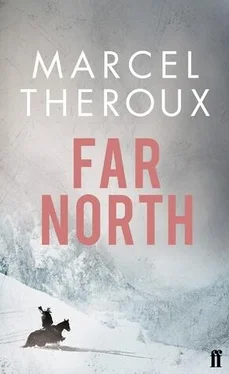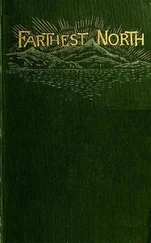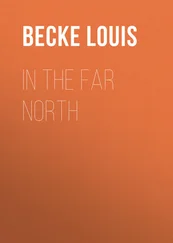When evening came we ate dried meat and bread we had brought with us, on account of the radiation in the game. The guards threw scraps to the boy, which he ate as he sat and rocked on his haunches.
At nightfall he crawled under a caribou skin beside the fire and fell asleep.
*
That night the stars were bright as anything. There were wisps of silver fog above the trees, and still the smoke rose from the burned forest.
I watched my breath rise up into the clear sky. The stars once had names, every one, and once shone down like the lights of a familiar city, but each day they grew a little stranger. I knew the Pole Star and the Dipper to travel by, and I’d had the others explained to me over the years, but was that the Great Bear, or Arcturus? Andromeda, or Orion’s belt? Could you see Venus this far north in January?
The sky was becoming a page of lost language. Things as a race we’d witnessed and named for ever were being blotted out of existence.
Once these rivers all had names, the hills too, maybe even the smaller dinks and folds in the pattern of the landscape.
This was a place once , I thought.
We had been so prodigal with our race’s hard-won knowledge. All those tiny facts inched up from the dirt. The names of plants and metals, stones, animals and birds; the motion of the planets and the waves. All of it fading to nothing, like the words of a vital message some fool had laundered with his pants and brought out all garbled.
Here we were, within a day of the Zone, getting ready to filch from dirty land the things we no longer had the wit nor means to make. And when the Zone was exhausted, we would be lucky to be this boy, stalking poisoned animals in a forest we could no longer name. He was our best possible future.
I lay down to sleep thinking that as much as I missed what was gone, maybe this was the best thing: for the world to lie fallow for a couple of hundred years or more, for the rain to wash her clean. We’d become another layer of her history, a little higher in the soil than the Romans and the people that built the Pyramids. Yes, Makepeace, I thought, maybe one day your mandible will show up under glass in a museum. Female of European origin. Note the worn incisors and the evidence of mineral deficiency from a poor and unvaried diet. Warlike and savage. And beside it some potsherds.
In the long run, the waters recede, the sun rises, and plants grow. I’ve never doubted that something will survive of us. Of course, I won’t make it. And all those books I saved will end up mulch and bird’s nests I suppose.
But something will go on. It just gives me no comfort when I imagine the day when the deluge has finally passed, and the dark, slippery, once-human things that will be waiting to hatch out of the ark.
WE WERE OFF and moving at daybreak, the clouds above us a mass of black and red.
I don’t know if it was the mood among us that morning, or the dead silence of that poisoned land, but I felt a deep misgiving about where we were headed.
I was afraid Tolya would kill the boy to save the trouble of keeping him, so I took charge of him and let him amble in back of me. He was docile like a herd animal and seemed to want nothing more than to trot behind my horse and share my water.
For two hours until mid-morning we made a long, slow pull up to the shoulder of a low hill. The boy and me were the last to get there. We found the others had stopped and were gazing out at the vista in the next valley.
It was the ruins of a city — and not a city like mine, with its middling houses dwarfed by the water tower — but a city of glass and concrete, with buildings that soared into the sky, and a bridge that spanned a wide, fast-moving section of the river. The city was still and grey, and birds wheeled over its silent streets.
The prisoners were staring too, though some had taken the chance to gulp water or chew on the bread they’d been given. Tolya had a spyglass, and he passed it among us.
Through Tolya’s glass, the city looked like a mouthful of rotten teeth, its buildings and windows hollowed out and lifeless, but its size was awesome. Way in back, on a rise in the rear of the city, was a tower that must have been a hundred yards high. It looked too spindly to stand without blowing over, and yet on top of it was a big disc with windows all around it that seemed to perch there in defiance of the laws of nature.
Over on the most eastern bend of the river, three chimneys, each of them painted in red and white stripes, rose from a vast square box. The building crouched at the water’s edge, and from it sprang a net of wires that were carried on steel legs to the farther side of the river and fanned out beyond it into the distance.
After we’d rested, we descended to the edge of the river and made our way along its bank to the bridge.
It took us maybe forty-five minutes to get there. Our pace slowed as we got closer. Not that we were fearful, but there was so much to take in. Every man’s head was craning this way and that, drinking in the details. The prisoners who were going to go right to the heart of it seemed almost excited.
The banks of the river were lined with concrete slabs which had narrowed its original course. That was why, even in February, it hadn’t frozen hard.
Beyond it, on the far side, those towers rose up. You had to wonder how many thousands of people might have lived here when the place was alive. And you had to wonder, too, how many thousands of places like this might have been built the world over. In the old days, at night, men in planes must have been able to see a city like this from the air, sketched out by the lines of its streetlights and the glow of its lit windows.
It struck me that my plae had gone out from a city much like this one — god knows, even bigger than this one — a place that had kept its knowledge and customs, a place where each person woke up each day to add their piece to the whole sum of endeavour that had been going on since who knew when, instead of waking up each day like Adam, and having to feed and clothe yourself from the garden and think up names for the trees.
*
We only went midway across the bridge, to where an empty block post divided the highway. There were rolls of rusting barbed wire scattered around it across the snow. That’s where we were to separate. The prisoners were to go on without us. They were chattering like children. One of them peed off the side of the bridge, just for the novelty of it, his piss arcing and then breaking into fine spray before it reached the concrete supports below.
As we stood and watched, they went on, passing the central span of the bridge, and moving leisurely forward, like a congregation taking their seats at a funeral. At that moment, I envied them for what they’d find.
I feel awe and wonder at the Lights, for instance, but I know it’s nature’s work. Standing on the bridge, looking across at that empty city, everything in the compass of my gaze had been set there by a human hand. Somehow, those pylons had been strung with wire, and those towers raised, and roofs felted. There had been food and drink for millions of mouths. I don’t cry easy, but my vision blurred as I stared on the ruins of what we had been, and I watched the small band of men in rags move towards it to pick at it like birds on the carcass of some giant.
They’d entered a patch of waste ground at the other end of the bridge where the road split three ways — one each way along the river bank, and a third that went on into the heart of the city, bearing right down a boulevard that was lined with tall, blighted chestnut trees.
A couple of them hunkered down on their haunches while they considered what to do next. That unfamiliar feeling they had — no one breathing down their neck, all that space around them — must have given them an inkling of freedom.
Читать дальше












